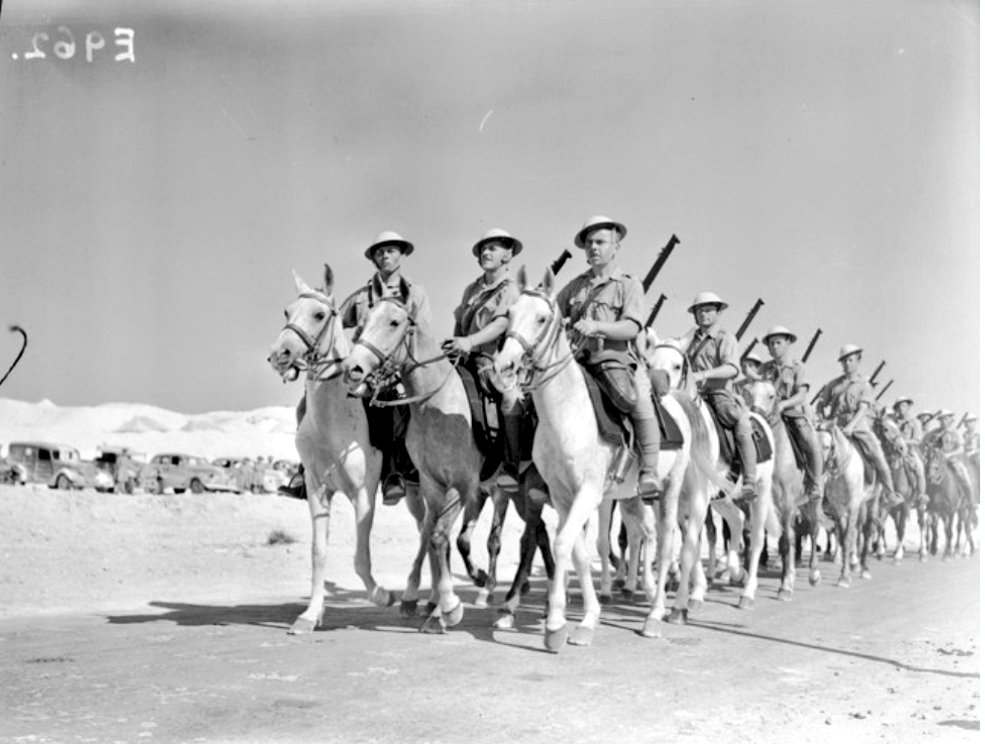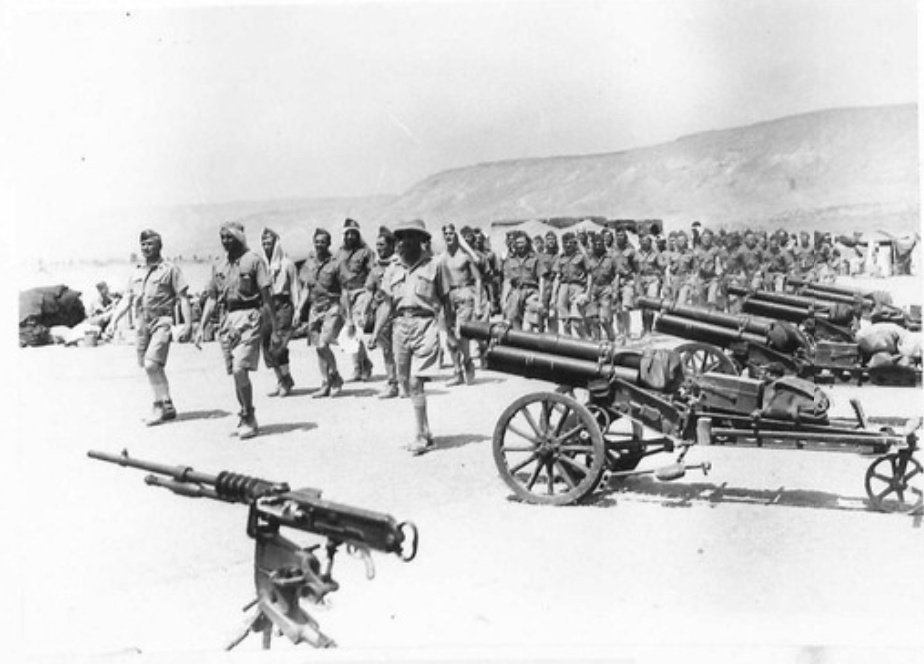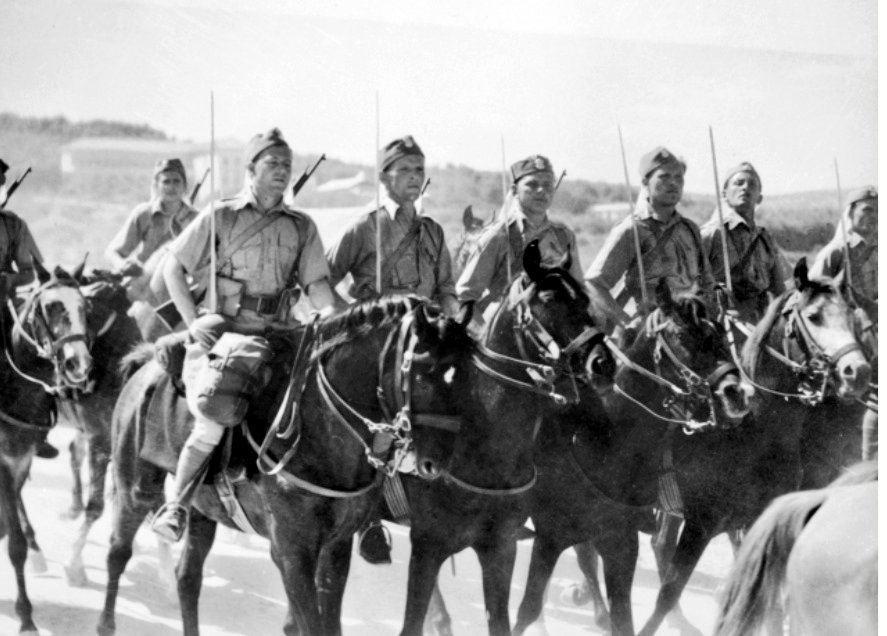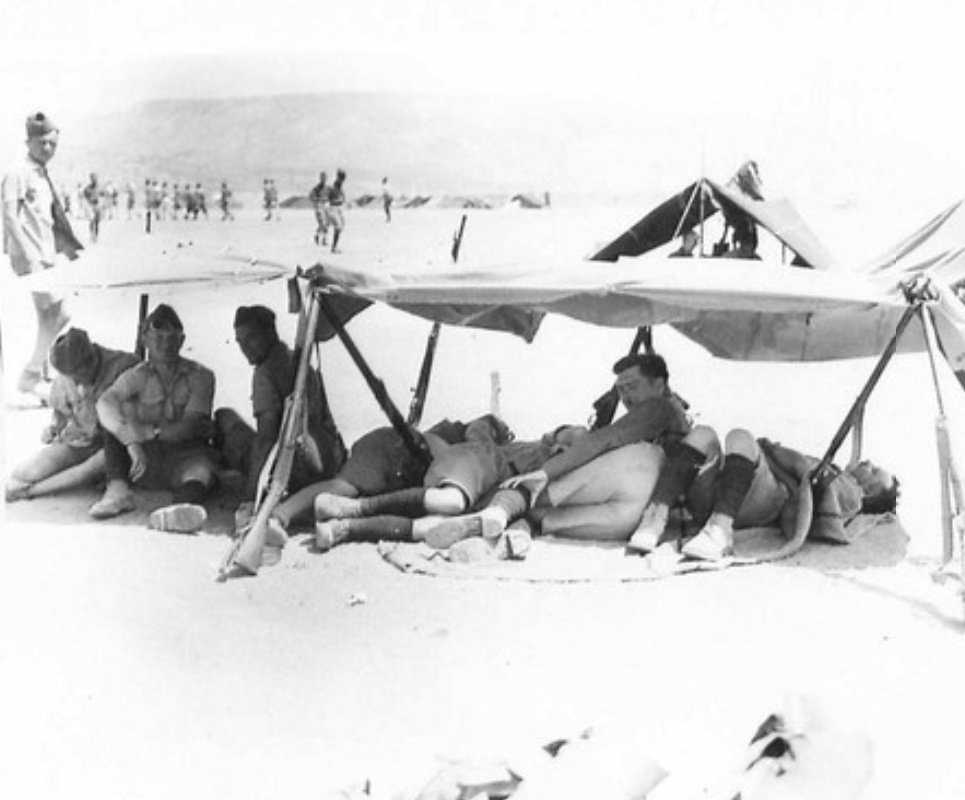"If it& #39;s going to be wasted or perhaps handed over to the Hun, we& #39;d better take it ourselves..."
In June 1940, as Pétain seeks an armistice with Hitler, a difficult choice faced the 4000 Poles of the Carpathian Brigade serving under French command in Syria.
/1
In June 1940, as Pétain seeks an armistice with Hitler, a difficult choice faced the 4000 Poles of the Carpathian Brigade serving under French command in Syria.
/1
Based in Homs, the Brigade was made up of Poles who had escaped from Romania and Hungary, and German and Soviet camps. Unable to reach France, they organised in North Africa under Colonel Kopański.
Ksawery Pruszynski describes their experiences in June 1940...
/2
Ksawery Pruszynski describes their experiences in June 1940...
/2
"Soon after the capitulation the Syrian army received orders to disband its several hundred thousand men, who were to be first disarmed.
"And what about us?" asked the Polish Commanders.
The French, always proficient in diplomacy, did not reply."
/3
"And what about us?" asked the Polish Commanders.
The French, always proficient in diplomacy, did not reply."
/3
"But their attitude towards the Poles underwent a considerable change. The promised delivery of equipment was not made; there was some trouble about pay and provisions were getting short.
Finally, under orders from Vichy, the French asked for a demobilisation of the Brigade."
/4
Finally, under orders from Vichy, the French asked for a demobilisation of the Brigade."
/4
"We shall do nothing of the kind," replied the Poles.
"Then give us back your arms. They are our property," argued the French.
"Soldiers don& #39;t part with their arms," said the Poles. It was perhaps not a very satisfactory reply from the point of view of common law...
/5
"Then give us back your arms. They are our property," argued the French.
"Soldiers don& #39;t part with their arms," said the Poles. It was perhaps not a very satisfactory reply from the point of view of common law...
/5
"The Poles courteously informed the French that they were to pass into British Palestine territory.
"We have orders to stop you," said the French very severely.
"We shall then have to shoot our way through, though we should hate to do it," observed the Carpathian Brigade."
/6
"We have orders to stop you," said the French very severely.
"We shall then have to shoot our way through, though we should hate to do it," observed the Carpathian Brigade."
/6
"It was argued that soldiers who die not care to shoot Germans would probably not be any more anxious for a scrap with the Poles.
The Brigade collected on its way as much armament and equipment as possible, and there was quite a lot of it..."
/7
The Brigade collected on its way as much armament and equipment as possible, and there was quite a lot of it..."
/7
"True to the traditions of the Polish Army, they took special care to get the best horses.
The French Army, expecting a Balkan campaign, had plenty of horses and the Poles wanted to bring them as an introductory gift for the British Army."
/8
The French Army, expecting a Balkan campaign, had plenty of horses and the Poles wanted to bring them as an introductory gift for the British Army."
/8
"The column went along an old war path, as so many war caravans had before. It followed the valley of the narrow calm, holy river Jordan.
"We are in the Holy Land," whispered the devout Polish soldiers and crossed themselves with bowed heads, their peasant fathers had done."
/9
"We are in the Holy Land," whispered the devout Polish soldiers and crossed themselves with bowed heads, their peasant fathers had done."
/9
"Finally, the Polish pilgrims reached Jerusalem. The British authorities welcomed them with friendly and generous hospitality.
Polish camps were established in towns with names that meant a great deal to the soldiers, in Bethlehem, Hebron and Nazareth."
/10
Polish camps were established in towns with names that meant a great deal to the soldiers, in Bethlehem, Hebron and Nazareth."
/10
The IWM photographs were taken five days after the Carpathian Brigade reached British territory - with all the horses and equipment they had liberated from the French.
After several months of retraining, the Poles would enter the North Africa Campaign at Tobruk.
/END
After several months of retraining, the Poles would enter the North Africa Campaign at Tobruk.
/END
And would love insights on how useful the looted stuff actually was to the British. Rifles are only useful with the correct ammunition, motorbikes with parts, and did all those horses represent a gain or a logistical nightmare?

 Read on Twitter
Read on Twitter












